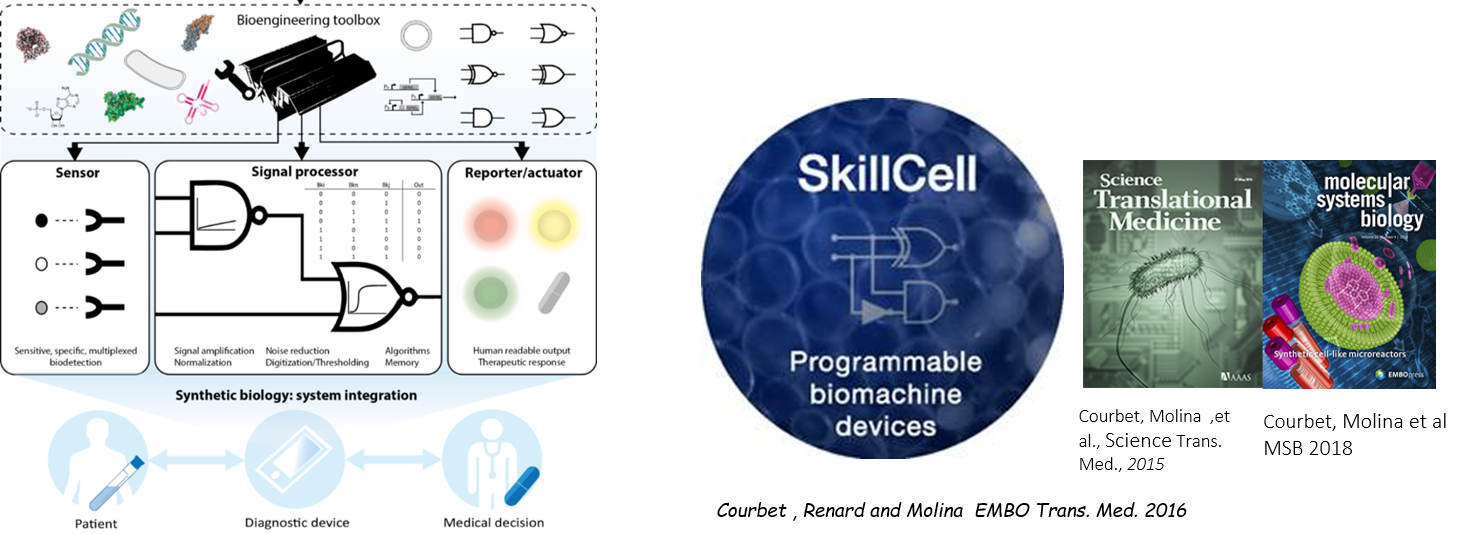Sys2diag
Sys2diag : Modélisation et ingénierie des systèmes complexe biologiques pour le diagnostic
Biomachines design for next generation medical diagnostic
COVID-19 crisis showed us that research must adapt hit practices to face the pandemics challenges. EasyCOV rapid salivary covid test is an example of such public-private and inter-disciplinary cooperation. Current evolutions in medical practices induce a change of paradigm with the convergence of diagnosis and therapy, going to precision medicine and “theranostics”. One can observe the new role of biomarkers in biomedical and therapeutic applications, for instance in the development of molecular multiplex biosensors (nucleic acid, proteins, and metabolites). In addition, there is an increasing interest for point-of-care (POC) and of home monitoring/testing technologies devoted to probe patient parameters in his direct environment. The obvious constraints for such a kind of new clinical practices are simplification, drastic cost reduction while keeping high performances. Within this context, synthetic biology provides new opportunities to develop a novel generation of biological biosensors able to perform multiplexed biomarkers detection, simple computation and returning simplified relevant results [1]. In order to design robust synthetic biological biosensor systems reliable in a clinical context and based on biochemical circuits, we developed an original methodology ensuring biochemical implementation of logical tasks within nonliving vesicles so called “biomachines”. This methodology covers in silico design, simulation, microfluidics production and clinical validation on human samples [2]. It ends up in very simple diagnostic assay like for instance the new insulin-resistance assay, which is also quick and easy to run out of a laboratory and at very low cost.

Responsable de l’équipe : Franck MOLINA
Site web équipe : https://www.sys2diag.cnrs.fr
Correspondant GDR : Franck MOLINA
Mots-clés
Biologie synthétique
biosenseurs
biomachines
microfluidique
diagnostic

